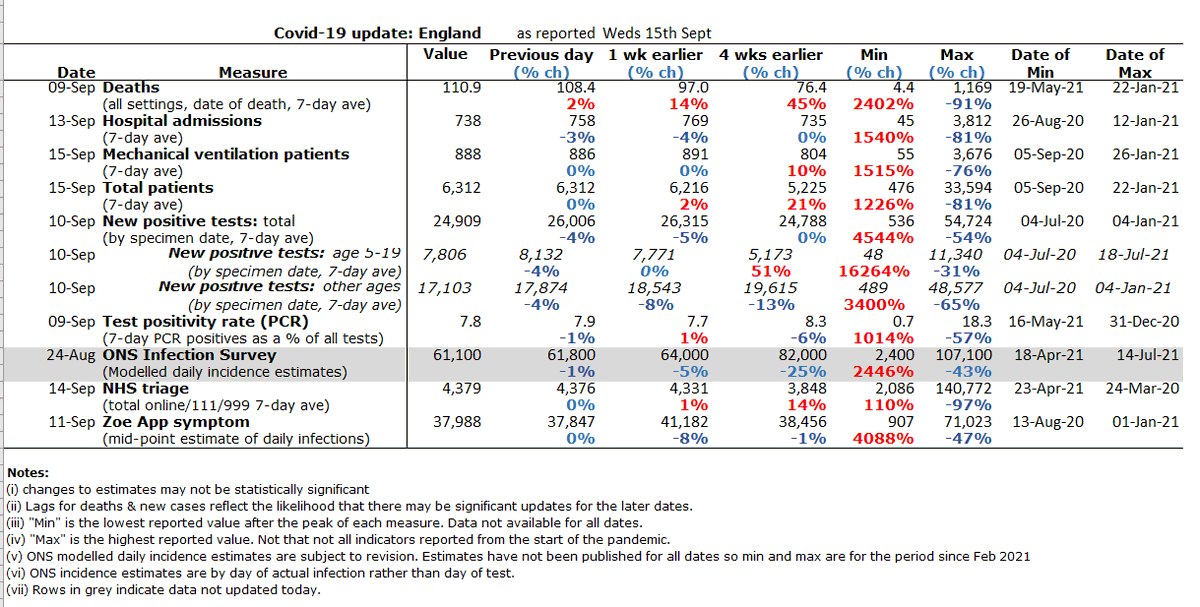
The latest ONS official incidence estimates confirm new infections continued to fall after the final re-opening in England on 19 July (including end of social distancing restrictions, nightclubs open, full sports stadia & end of mask mandates). 

The trends in Wales, NI & Scotland (who all kept their mask mandates in place) show a mixed picture: rates increased in NI (fast) & Wales (more slowly). Scotland rates continued down quite fast over the same period. 

These are the estimates of daily new infections in England.
The most recent few days can get revised, but safe to conclude that new infections were decreasing for at least 2 weeks from 19th July reopening/end of mask mandate.
The most recent few days can get revised, but safe to conclude that new infections were decreasing for at least 2 weeks from 19th July reopening/end of mask mandate.

Note the ONS estimates are based on the date of infection not date of test so no need to allow for any lag (unlike with other indicators like PHE positive test data). Source: ons.gov.uk/peoplepopulati…
• • •
Missing some Tweet in this thread? You can try to
force a refresh





